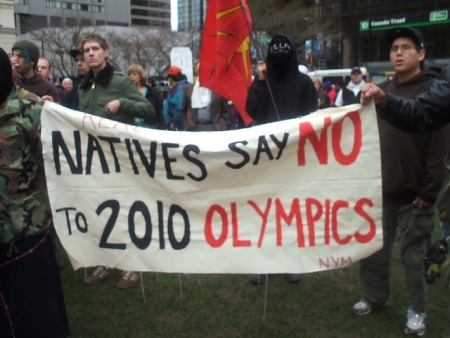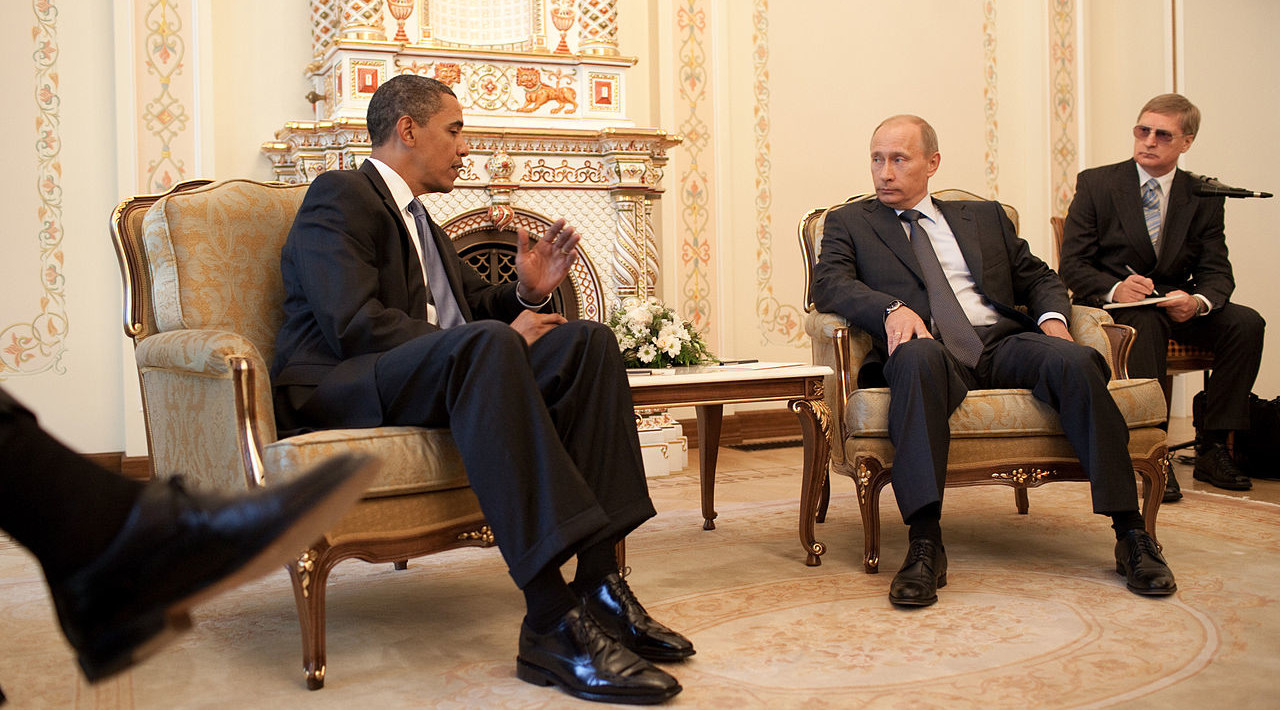In 2009, Secretary of State Hillary Clinton handed her Russian counterpart, Sergey Lavrov, a red button marked “reset” (peregruzka) to commemorate the thawing relations between the United States and Russia. Unfortunately, according to Lavrov, peregruzka actually meant ‘overcharged.’ Despite the linguistic confusion and the US’s failed translation, Clinton and Lavrov concluded their meeting claiming they had accomplished their initial goal – reducing the frostiness of US-Russian relations.
Five years later, the 2014 Sochi Winter Olympic games opened amidst a flurry of negative media coverage from major Western news outlets. The responsibility of hosting the Olympic games comes with widespread international attention, whether positive or negative. The coverage of the recent Sochi Olympics, however, has been particularly aggressive. Several valid concerns were raised such as the games’ exorbitant price, Russia’s homophobic laws and the plight of stray dogs in Sochi (feral dogs being lined up for ‘systematic slaughter’ by ‘exterminators hired by the Russian government’ a.k.a. pogroms against canines).
Evaluating the issues that underscore hosting the games and the larger sociopolitical context of the host nation are certainly important concerns. While it is crucial that these matters are exposed in Sochi, it begs the question of where such scrutiny was during previous Olympics.
The 2010 Vancouver Olympics, perhaps the “worst in Olympic history,” are primarily remembered for the death of the Georgian luger Nodar Kumaritashvili, the mass refunding of tickets and the unfortunate lack of snow. If the news coverage of the Vancouver Olympics had been as politicized as it has been for Sochi, it would have also focused on Canada’s own history of displacement and human rights abuse.

Prior to the Vancouver games, several indigenous groups protested claiming that the games were being held on “stolen” land. British Columbia is, as a matter of fact, illegally occupied Native territory (due to the absence of treaties) according to both Canadian and international law. As stated by First Nations political leader, Arthur Manuel, “Making substantive and positive pressure at the 2010 Winter Olympics is important because Canada is trying to buy their way around their terrible human rights record at our expense.”
Although the territorial claims of indigenous populations are traditionally ignored by mainstream North American media, NBC News has diligently reported on the Circassian outrage at Sochi. The Circassians are a large indigenous group that has faced continuous oppression from the Russian government. The 2014 Games were actually held on the site of a Circassian massacre during its 150th anniversary.
Despite extensive media coverage about the discrimination of Circassians, the sole mention of indigenous people in the international critique of the Vancouver games came in the form of praise for Canada’s inclusion of indigenous cultures in the ceremony. According to NBC, indigenous populations were in full support of the Olympic games, contrary to Arthur Manuel’s statement.
The main issue of concern regarding the 2014 Sochi Winter Olympics, however, was Russia’s stance on homosexuality. International indignation heightened as President Barack Obama stated that he has, “No patience for countries that try to treat gays or lesbians or transgender persons in ways that intimidate them or are harmful to them.” Now, replace the word “country” with the word “state,” and the threat could just as easily be directed at US states that continue to violate the rights of gender minorities.
Below are three excerpts of statutory codes from Russia and the United States:
- No district shall include in its course of study instruction which: 1. Promotes a homosexual life-style 2. Portrays homosexuality as a positive alternative life-style 3. Suggests that some methods of sex are safe methods of homosexual sex.
- Propaganda of homosexualism among minors is punishable by an administrative fine.
- Instruction relating to education or sexually transmitted diseases should include…emphasis, provided in a factual manner and from a public health perspective, that homosexuality is not a lifestyle acceptable to the general public and that homosexual conduct is a criminal offense.
Note, only the second provision is from the Russian code. Not only does Texas’s code condemn homosexuality, it suggests teachers medically legitimize homophobic prejudice. Although, prior to the event, actor Harvey Fierstein proposed that the United States boycott the Olympics based on Russia’s prohibition of “propaganda of homosexuality,” in 2002 American Olympic athletes travelled to Utah, a state that prohibits “advocacy of homosexuality.” 14 US states continue to have “anti-sodomy laws,” despite the 2003 Supreme Courts initiative, while Russia has not officially banned homosexuality. This begs the question, is intolerance justified when it’s legal?
The hyper-politicization of “Putin’s Olympics” may imply residual Cold War sentiment, or perhaps international tension over:
- Ukraine and the fact that “what the Americans are getting up to now, unilaterally and crudely interfering in Ukraine’s internal affairs, is a clear breach” of a treaty between the two countries, according to Russian adviser, Sergey Glazyev.
- Edward Snowden and Moscow’s offer to shelter him.
- Russia’s continued support of the Assad regime in Syria and the resultant worsening of US-Russia relations.
Undermining Russian integrity by politicizing the games has only served to re-establish international political divisions and defy the very foundations of the Olympic mission.
Attempts to portray Russia as significantly negligent in terms of human rights insinuate a larger political narrative. Russia may deserve the criticism, as their human and civil rights violations have been particularly flagrant (except in comparison to China’s 2008 Beijing Olympics). If the international outrage truly stems from a sense of moral injustice, as opposed to political opportunism, why is the global reaction to the Sochi games unparalleled by that of previous Olympics?
The goal of the Olympic movement is to “contribute to building a peaceful and better world… which requires mutual understanding with a spirit of friendship, solidarity and fair play.” In demeaning and politicizing “Putin’s Olympics,” Western media failed to distinguish between the Russian people and their government. Ultimately, undermining Russian integrity by politicizing the games has only served to re-establish international political divisions and defy the very foundations of the Olympic mission.
